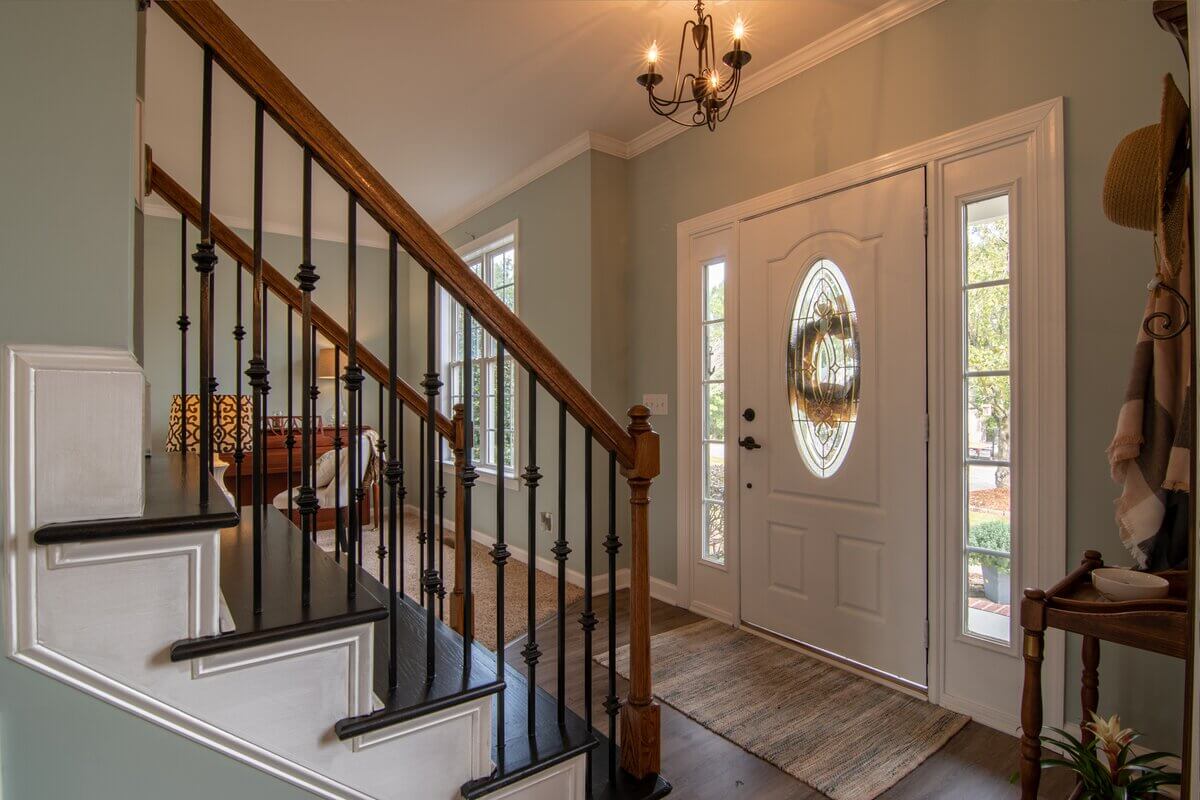
Making the decision to sell an inherited property can be difficult and can understandably stir up some uncomfortable emotions. However, once you’ve made the decision to sell an inherited house, it’s important to know exactly what you’re getting into.
Selling inherited property in the UK: FAQs
In this blog, we tackle what you need to know about selling inherited property in the UK, as well as answer some of our most frequently asked questions about selling an inherited property.
How does inheriting a property work?
Inherited properties can be left solely to one person, or split between several people. If a property is split equally between more than one person – for example siblings – they will become joint tenants (known as ‘joint owners’ in Scotland). However, if the beneficiaries will each get a specified share of the property, this is known as tenants in common (known as ‘common owners’ in Scotland and ‘coparceners’ in Northern Ireland).
It’s important to make this distinction as the ways in which selling an inherited property works depends on whether you have become the sole owner, joint tenants or tenants in common.
Can I sell an inherited house?
Yes, when you have inherited a property you are able to sell this property on if you don’t want to keep it or rent it out. However, the proper procedures must be followed.
Firstly, you need to establish that you are now the legal owner of the property. If a person has written a will and named you as the beneficiary, this process is fairly simple. When creating a will, the deceased should have named a beneficiary and also an executor – someone who ensures that their wishes are carried out.
If the deceased did not create a will, the property is inherited under the rules of intestacy. There are different regulations across different parts of the UK, but the following guidance applies to England only.
- Only those who were married to or in a civil partnership with the deceased at the time of their death can inherit.
- If the estate is valued at more than £270,000 and there are surviving children, grandchildren or great grandchildren of the deceased, the partner will inherit: all the personal property and belongings of the person, the first £270,000 of the estate and half of the remaining estate.
- If there are no surviving children, grandchildren or great-grandchildren of the deceased, the partner – who was married to or in a civil partnership with the deceased at the time of death – will inherit: all the personal property and belongings of the person and the whole of the estate with interest from the date of death.
- There are various other scenarios that can occur under intestacy, however, if there are no surviving relatives eligible to inherit the property, it will be passed to the Crown – bona vacantia.
Once it has been established that you are the legal owner of the inherited property, you can start the process of selling the property and applying for probate.
Can you sell an inherited property before probate?
A sale of an inherited property cannot be completed until probate is granted. Probate is the legal right to deal with someone’s estate – their property, money and belongings – after they pass away. The following guidance relates only to England and Wales.
Sometimes, probate isn’t required. This could be the case if the individual only had savings, owned shares or money with others, or owned land or property as joint tenants. In the latter two instances, the estate automatically passes to the surviving owners unless they have previously agreed otherwise.
There are rules about who can apply for probate: if there is a will, the beneficiary can apply and if there is no will, the closest living relative can apply. You also need to see whether or not Inheritance Tax is due on the property and value the estate before applying for probate. We’ll cover more about Inheritance Tax below.
Do I pay tax when I sell an inherited property?
Many people are confused about tax rules when it comes to inherited properties. As per the UK Government website, “you do not pay Stamp Duty, Income Tax or Capital Gains Tax immediately if you inherit a property” if you are located in England, Wales or Northern Ireland. The rules for tax on inherited estates are different in Scotland.
However, this doesn’t mean that you won’t owe tax in the future – HMRC will contact you if you owe any Inheritance Tax on the inherited property. Typically, you don’t need to pay Inheritance Tax if either: the value of the estate is below the £325,000 threshold or the deceased decides to leave everything above the £325,000 threshold to their spouse, civil partner or a charity.
It’s worth noting that if the deceased decided to give away their property to their children or grandchildren, then the threshold can increase to £500,000. The standard rate for Inheritance Tax is 40% and it is only charged on the part of the estate that is above the threshold.
Capital Gains Tax can be due if you sell an inherited property and its value has increased since the time you inherited it. Income Tax is only due on an inherited property if you use it as a means to earn money – for example, by renting it out.
Do you have to sell inherited property?
No, you don’t have to sell an inherited property – there are other options including renting it out and living in the property. Once the probate is complete, the property will be in your name and you can decide what to do with it.
It’s important to consider the tax implications of what you do with your inherited property. If you rent out the inherited property you will be liable to pay Income Tax for it; you could owe Inheritance Tax and if you sell the property and the value has increased since probate, you could owe Capital Gains Tax.
Taking the advice of a respected estate agent, as well as seeking legal advice, can help to mediate any risks and ensure you make the best decision for your circumstances. They will also be able to inform you of everything you need to know before making the sale official.
